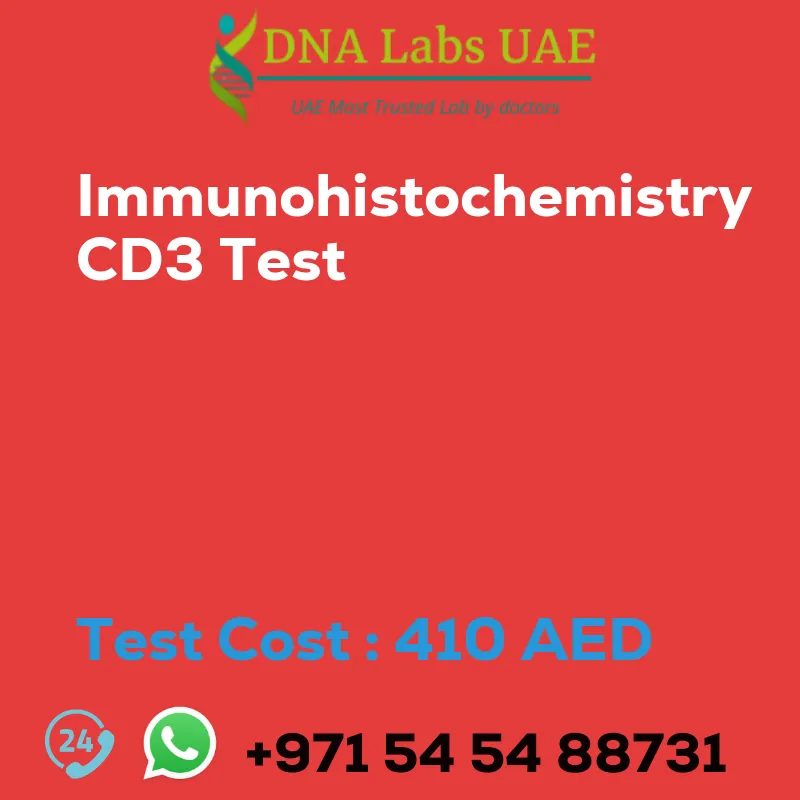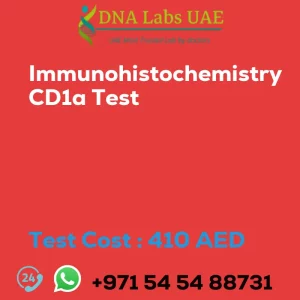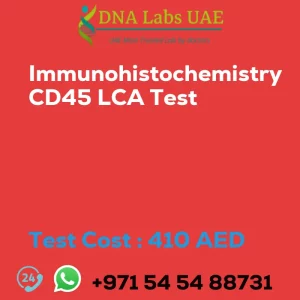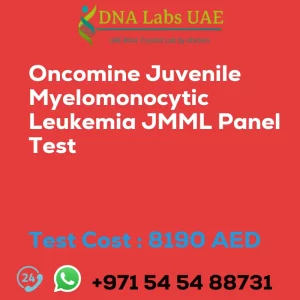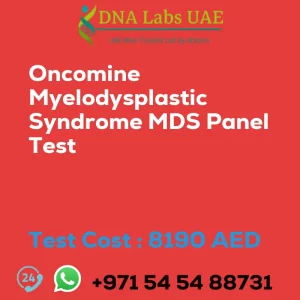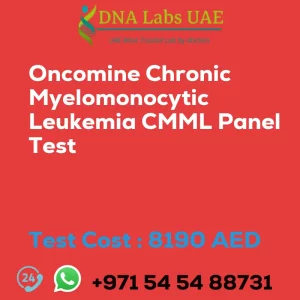IMMUNOHISTOCHEMISTRY CD3 Test
Test Name: IMMUNOHISTOCHEMISTRY CD3 Test
Components: CD3 antigen detection in tissue samples
Price: 410.0 AED
Sample Condition: Submit tumor tissue in 10% Formal-saline OR Formalin fixed paraffin embedded block. Ship at room temperature. Provide a copy of the Histopathology report, Site of biopsy and Clinical history.
Report Delivery: Sample Daily by 6 pm; Report Block: 5 days Tissue Biopsy: 5 days Tissue large complex: 7 days
Method: Immunohistochemistry
Test Type: Cancer
Doctor: Oncologist, Pathologist
Test Department:
Pre Test Information: Provide a copy of the Histopathology report, Site of biopsy and Clinical history.
Test Details
The immunohistochemistry CD3 test is a laboratory test that is used to detect the presence of CD3 antigen in tissue samples. CD3 is a protein that is expressed on the surface of T-cells, which are a type of white blood cell involved in immune responses.
The test is commonly used in the diagnosis and classification of lymphomas, as well as in the evaluation of other diseases that involve T-cell abnormalities. By staining the tissue sample with antibodies specific to CD3, the test allows pathologists to identify and quantify the presence of CD3-positive cells.
The immunohistochemistry CD3 test is performed on tissue samples obtained through biopsies or surgical procedures. The tissue is typically fixed, embedded in paraffin, and cut into thin sections. These sections are then mounted on glass slides and treated with the CD3 antibody. If CD3 is present in the tissue, the antibody will bind to it and can be visualized using various staining techniques, such as chromogenic or fluorescent staining.
The results of the immunohistochemistry CD3 test are interpreted by a pathologist, who will examine the stained tissue sections under a microscope. The pathologist will assess the intensity and distribution of CD3 staining and may provide a quantitative analysis of the CD3-positive cells.
The immunohistochemistry CD3 test is a valuable tool in the diagnosis and management of various diseases, particularly those involving T-cell abnormalities. It can help differentiate between different types of lymphomas, determine the extent of T-cell infiltration in tissues, and monitor the response to treatment.
| Test Name | IMMUNOHISTOCHEMISTRY CD3 Test |
|---|---|
| Components | |
| Price | 410.0 AED |
| Sample Condition | Submit tumor tissue in 10% Formal-saline OR Formalin fixed paraffin embedded block. Ship at room temperature. Provide a copy of the Histopathology report, Site of biopsy and Clinical history. |
| Report Delivery | Sample Daily by 6 pm; Report Block: 5 days Tissue Biopsy: 5 days Tissue large complex : 7 days |
| Method | Immunohistochemistry |
| Test type | Cancer |
| Doctor | Oncologist, Pathologist |
| Test Department: | |
| Pre Test Information | Provide a copy of the Histopathology report, Site of biopsy and Clinical history. |
| Test Details |
The immunohistochemistry CD3 test is a laboratory test that is used to detect the presence of CD3 antigen in tissue samples. CD3 is a protein that is expressed on the surface of T-cells, which are a type of white blood cell involved in immune responses. The test is commonly used in the diagnosis and classification of lymphomas, as well as in the evaluation of other diseases that involve T-cell abnormalities. By staining the tissue sample with antibodies specific to CD3, the test allows pathologists to identify and quantify the presence of CD3-positive cells. The immunohistochemistry CD3 test is performed on tissue samples obtained through biopsies or surgical procedures. The tissue is typically fixed, embedded in paraffin, and cut into thin sections. These sections are then mounted on glass slides and treated with the CD3 antibody. If CD3 is present in the tissue, the antibody will bind to it and can be visualized using various staining techniques, such as chromogenic or fluorescent staining. The results of the immunohistochemistry CD3 test are interpreted by a pathologist, who will examine the stained tissue sections under a microscope. The pathologist will assess the intensity and distribution of CD3 staining and may provide a quantitative analysis of the CD3-positive cells. The immunohistochemistry CD3 test is a valuable tool in the diagnosis and management of various diseases, particularly those involving T-cell abnormalities. It can help differentiate between different types of lymphomas, determine the extent of T-cell infiltration in tissues, and monitor the response to treatment. |

